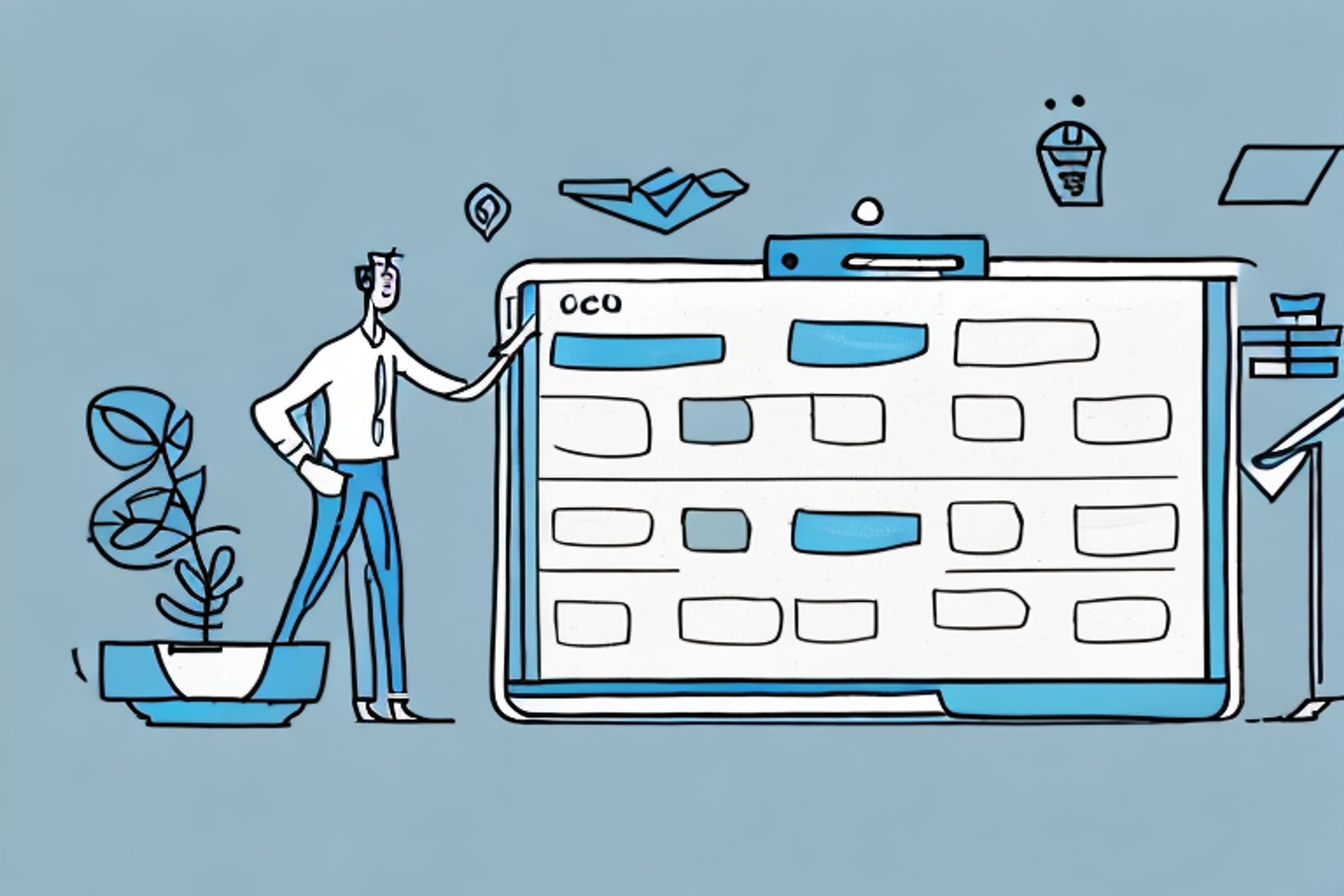How to Prepare for KPCB Fellows Product Management Behavioral Interviews
Are you preparing for a KPCB Fellows Product Management Behavioral Interview? Look no further! Our comprehensive guide covers everything you need to know to ace the interview and land your dream job.
Posted March 6, 2025

Table of Contents
KPCB Fellows Program is a highly competitive program designed for aspiring product managers who are looking to gain hands-on experience in Silicon Valley. If you're lucky enough to be selected, you will have the opportunity to work at a top company for 10 weeks and gain insights into the fast-paced world of product management. While the application process may be rigorous and competitive, the real challenge lies in the behavioral interview. In this article, we will provide you with a comprehensive guide on how to prepare for a KPCB Fellows Product Management behavioral interview.
Understanding the KPCB Fellows Program
The KPCB Fellows Program is one of the most prestigious product management fellowships in Silicon Valley. The program provides an opportunity for undergraduate and graduate students to gain hands-on experience in product management by working at a top company. The program is highly competitive, with only a limited number of applicants being selected each year.
During the program, fellows are paired with a mentor who is a seasoned product manager at the host company. The mentor provides guidance and support throughout the fellowship, helping the fellow to develop their skills and gain a deeper understanding of the product management process. Fellows also have the opportunity to attend workshops and events hosted by KPCB, where they can network with other fellows and industry professionals.
One unique aspect of the KPCB Fellows Program is its focus on diversity and inclusion. The program actively seeks out applicants from underrepresented backgrounds, including women, people of color, and individuals from low-income families. This commitment to diversity helps to ensure that the next generation of product managers reflects the diversity of the communities they serve.
Why Product Management Behavioral Interviews Matter
Behavioral interviews are a key aspect of the KPCB Fellows Program application process. They provide an opportunity for the selection committee to evaluate your experiences, skills, and personality to determine if you would be a good fit for the program. During a behavioral interview, the interviewer will ask you a series of questions designed to gauge your thought process and decision-making abilities.
One of the reasons why behavioral interviews are so important for product management roles is that they allow the interviewer to assess your ability to work collaboratively with others. Product managers need to be able to work effectively with cross-functional teams, including engineers, designers, and marketers. By asking questions about your past experiences working with others, the interviewer can get a sense of how well you are likely to fit into a team-based environment.
Another reason why behavioral interviews are important is that they can help the interviewer to assess your ability to prioritize and manage your time effectively. Product managers are often responsible for juggling multiple projects and competing priorities, so it's important to be able to manage your time effectively. By asking questions about how you have managed your time in the past, the interviewer can get a sense of how well you are likely to handle the demands of the role.
Common Types of Questions Asked in PM Behavioral Interviews
Behavioral interviews typically involve questions that are designed to test your experiences and skills. Some common types of questions include:
- Describe a time when you had to solve a difficult problem.
- Tell me about a time when you had to make a tough decision.
- What is your approach to product management?
- How do you handle conflict in the workplace?
These questions may seem simple, but they require in-depth answers that demonstrate your expertise and experience.
It's important to note that in addition to answering these questions with specific examples from your past experiences, it's also important to showcase your thought process and decision-making skills. Interviewers want to see how you approach problems and make decisions, not just the outcome of those decisions. Additionally, be prepared to discuss any challenges or failures you've faced in your career and how you overcame them. This shows resilience and a willingness to learn and grow from mistakes.
Preparing for Behavioral Interviews: Key Strategies and Techniques
Preparing for your KPCB Fellows Product Management behavioral interview is key to success. Here are a few strategies and techniques that you can use to prepare:
- Research and understand the company and the product management role you are applying for.
- Practice your responses to common behavioral interview questions.
- Prepare examples of your accomplishments and experiences that demonstrate your critical thinking and problem-solving abilities.
- Be prepared to discuss your approach to product management and your understanding of the role.
- Practice active listening and asking insightful questions.
Another important strategy to prepare for a behavioral interview is to review the job description and identify the key skills and qualifications required for the role. This will help you tailor your responses to highlight your relevant experience and expertise.
It is also helpful to practice telling stories that showcase your strengths and abilities. These stories should be concise and focused on specific situations where you demonstrated your skills. This will help you provide concrete examples during the interview and make a strong impression on the interviewer.
Developing a Personal Narrative for Behavioral Interviews: Tips and Tricks
A personal narrative is a story about your experiences that demonstrates your skills and expertise. Developing a personal narrative for a behavioral interview can help you stand out from other applicants. Here are a few tips and tricks to help you develop your personal narrative:
- Choose experiences that are relevant to the product management role you are applying for.
- Focus on specific examples that highlight your problem-solving and critical thinking skills.
- Avoid using technical jargon and jargon that is specific to your current or former employer.
- Practice your personal narrative with a friend or family member.
- Stay humble and avoid sounding arrogant or pompous.
Crafting Compelling STAR Stories: Examples and Best Practices
A STAR story is a narrative that uses the Situation, Task, Action, and Result structure to tell a story and demonstrate your experiences and abilities. Here are a few examples and best practices for crafting compelling STAR stories:
- Choose stories that are relevant to the product management role you are applying for.
- Use real-life examples that demonstrate your actions, your thought process, and the results of your actions.
- Familiarize yourself with the STAR story structure and practice crafting stories using this structure.
- Stay focused on the relevant details and avoid getting bogged down with irrelevant information.
- Practice storytelling with a friend or family member.
Building a Strong Resume and Cover Letter for KPCB PM Fellowship
Your resume and cover letter are the first impression that the KPCB selection committee will have of you. Therefore, it's important that they are strong and showcase your achievements and skills. Here are a few tips for building a strong resume and cover letter for the KPCB PM Fellowship:
- Showcase your relevant experiences and achievements.
- Use bullet points to highlight specific accomplishments and skills.
- Avoid vague or generic language.
- Include specific examples of your accomplishments.
- Customize your resume and cover letter to the specific fellowship you are applying for.
Leveraging Networking and Referrals to Land a PM Fellowship Interview
Networking and referrals can be a powerful tool when it comes to landing a PM Fellowship interview. Here are a few tips for leveraging networking and referrals to land an interview:
- Attend industry events and meet product managers.
- Connect with alumni from the fellowship program.
- Reach out to previous fellows on LinkedIn.
- Ask for referrals from your mentors and colleagues.
- Foster relationships with key industry players.
Navigating the Interview Process: What to Expect and How to Succeed
The interview process for KPCB PM Fellowship can be rigorous and challenging. Here are a few tips for navigating the interview process and succeeding:
- Prepare thoroughly for the behavioral interview.
- Review your resume and cover letter before the interview.
- Be on time and dress appropriately.
- Stay calm and focused during the interview.
- Ask insightful questions.
Post-Interview Follow-Up: Dos and Don'ts
Following up after an interview can be tricky. Here are a few dos and don'ts for post-interview follow-up:
- Send a thank-you email or note within 24 hours.
- Avoid being too pushy or aggressive.
- Stay persistent but professional.
- Send a follow-up email if you haven't heard back within a week.
Other Top PM Fellowships You Should Consider
While KPCB PM Fellowship is one of the most prestigious PM fellowships, there are other highly recognized fellowships that may be worth considering. Here are a few others to consider:
- Google Product Management Fellowship
- Microsoft Project Management Fellowship
- Facebook Product Manager Internship
Success Stories from KPCB PM Fellows Program Alums
The KPCB PM Fellows Program has produced several successful alumni who have gone on to become successful product managers at top companies. Here are a few success stories:
- Tiffany Zhong, Founder of Zebra IQ
- Stein Haukland, Product Manager at Apple
- Mary Beth Laughton, EVP at Sephora
Conclusion: Putting it All Together for a Successful KPCB PM Fellowship Interview
The KPCB PM Fellowship is an exceptional opportunity for aspiring product managers to gain hands-on experience and learn from the best in the industry. By following the tips and strategies outlined in this article, you can feel confident and prepared for your behavioral interview. Remember to stay calm, focused, and authentic throughout the process. With hard work, dedication, and a bit of luck, you can land your dream product management fellowship and start your career in Silicon Valley.


















